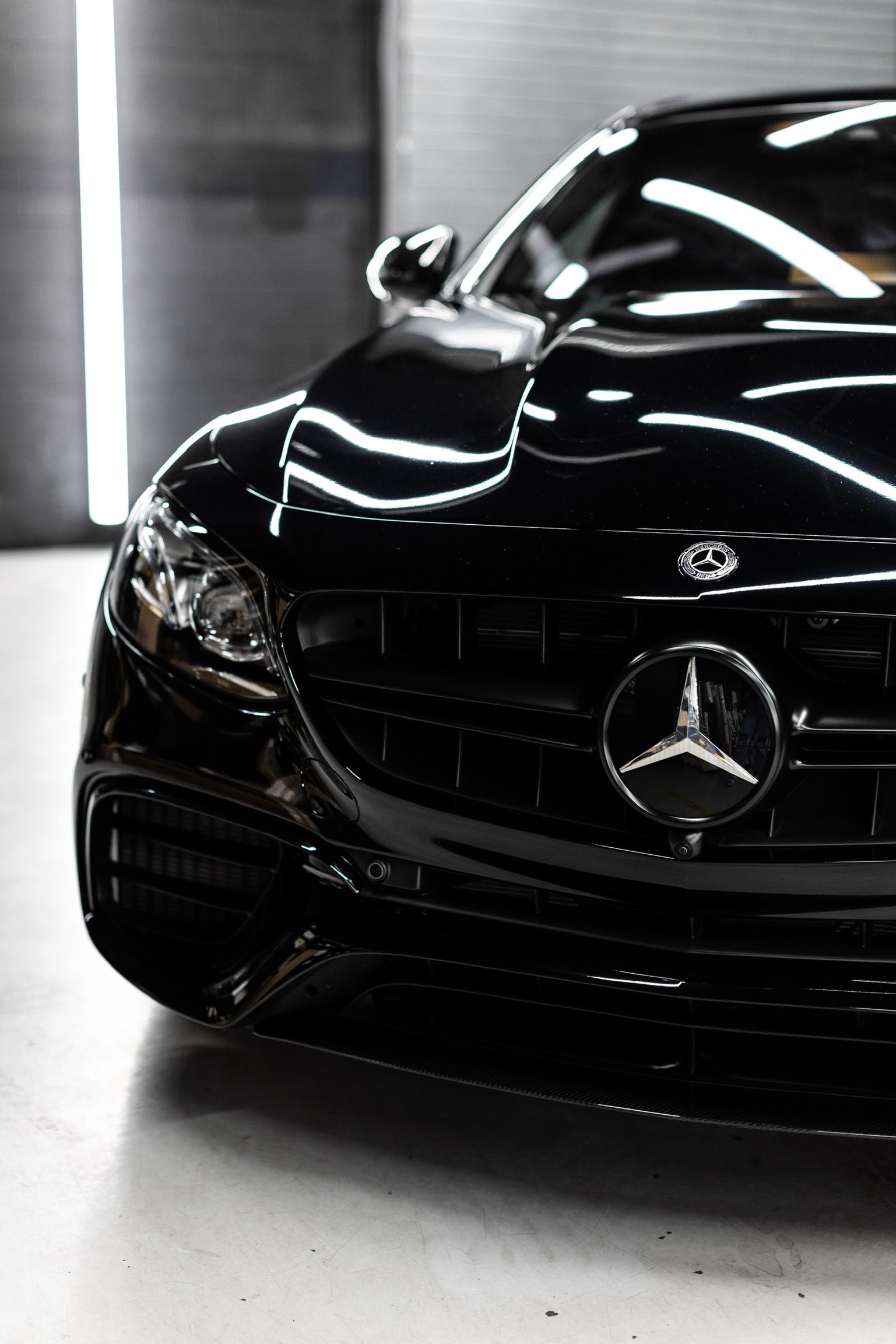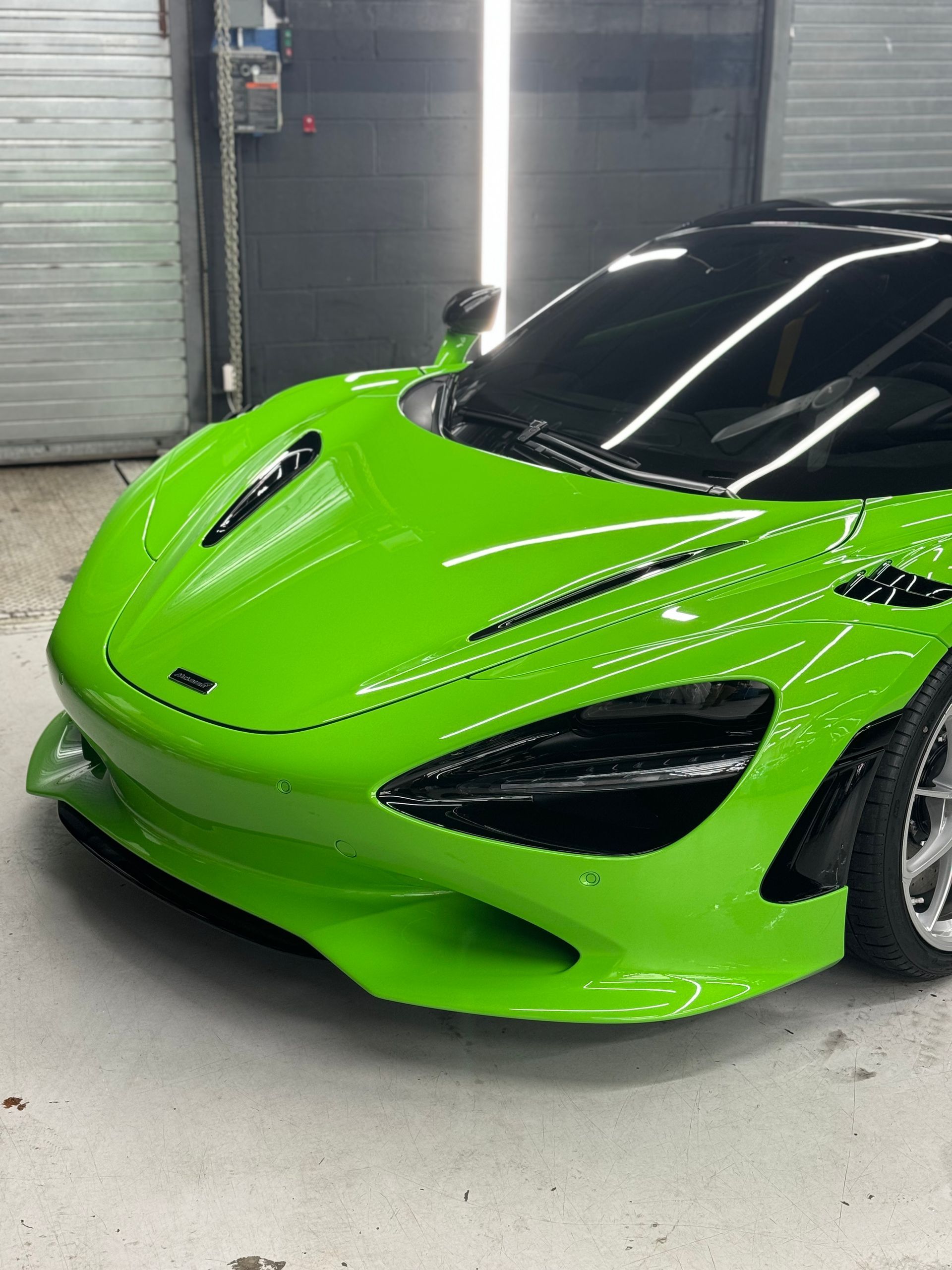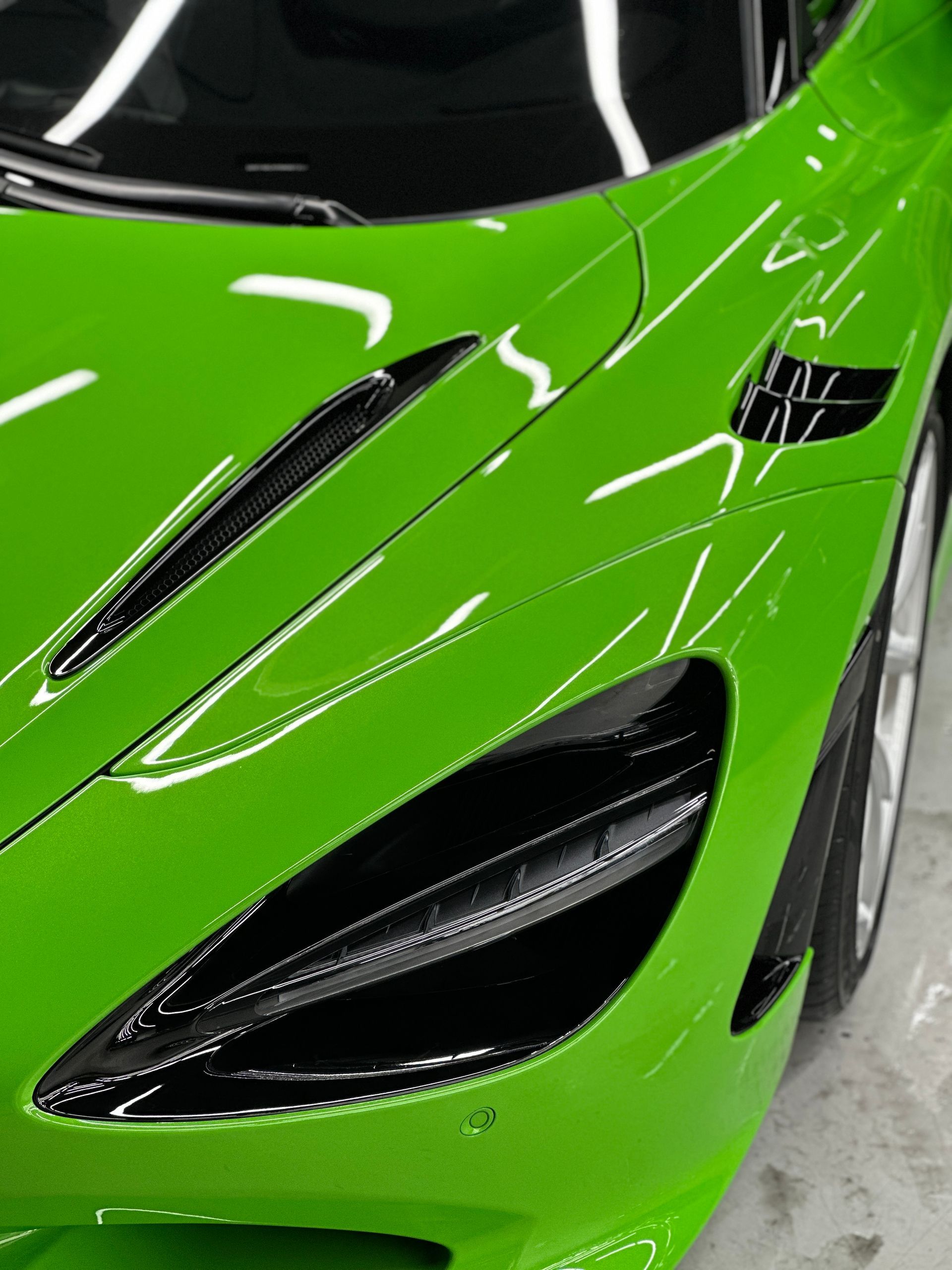Comparison of DIY and Professional Ceramic Coating Application: Results and Durability
GET A FREE ESTIMATEEvery car enthusiast faces an important decision when it comes to ceramic coating: should you go the do-it-yourself route or hire a professional? This choice isn't just about saving money; it's also about achieving a durable, high-quality finish that protects your beloved vehicle.
The main differences between DIY and professional ceramic coating applications lie in cost, time investment, required expertise, and overall quality of the finish. While DIY applications can be more cost-effective and allow for greater flexibility, they typically require significant preparation and knowledge, whereas professionals possess the experience and tools necessary to ensure a flawless result that may last longer.
Comparing DIY and Professional Ceramic Coating
When it comes to choosing between DIY and professional ceramic coating, the first point of comparison is the cost, which can greatly affect your choice. Professional coatings generally range from $1,000 to $2,500, factoring in the car’s size and the needed preparation time. While these services often provide top-notch materials, high-quality finishes, and warranties that offer peace of mind, many find this price steep when budgets are tight. In contrast, a DIY ceramic coating kit will set you back approximately $100 to $300. DIY ceramic coating brands present cost-effective options for those who wish to tackle the project themselves. However, cost isn't the only element to weigh; quality also plays a crucial role in this debate.
Quality Comparison
There is often a prevailing sentiment that professionals provide indelible expertise and access to superior products. This means their work can yield impressive results that tend to last longer than those accomplished through DIY efforts. Many individuals who have opted for professional applications enjoy not just a higher durability but also a more lustrous finish—a shine that truly turns heads at car meets or parked on the street. Consider this: a professionally applied ceramic coating often extends its lifespan up to seven years or more, while DIY solutions may last one to three years depending on environmental factors and maintenance practices.
Nevertheless, don’t dismiss DIY entirely. With the right tools, knowledge, and attention to detail, you can achieve substantial results. The key lies in meticulous preparation—an involved process that includes cleaning the surface thoroughly and applying the product with precision. If you’re willing to invest significant time into learning the ins and outs of ceramic application techniques, you might end up pleasantly surprised with your outcome.
Time Comparison
Time is indeed money, and this holds particularly true when it comes to applying a ceramic coating. For a DIY job, you're looking at committing an entire day, roughly 8 to 10 hours. This includes various meticulous steps such as pre-cleaning the car, claying the surface to remove contaminants, polishing to achieve a flawless finish, and finally applying the ceramic coating itself. Not only does this process demand significant effort, but if you happen to make mistakes—whether from not preparing properly or misapplying the coating—those hours can stretch even longer. On the other hand, professionals harness their experience and superior tools to get this laborious task done in about 4 to 6 hours. Their expertise allows them to navigate potential pitfalls more efficiently, ensuring that each step is executed swiftly and correctly.
Cost Comparison
In evaluating these options, many DIYers might initially feel inclined by the cost savings of doing it themselves—typically ranging from $100 to $300 for materials compared with $1,000 to $2,500 for a professional application. However, what needs careful consideration is the value of your time. Imagine devoting an entire weekend only to realize that you could have had this work done professionally within just a few hours. You might save money upfront, but at the expense of your leisure time.
Benefits of Ceramic Coating
The advantages of ceramic coatings extend beyond merely making your vehicle shiny. By investing in a ceramic coating, you're effectively reducing the risk of paint deterioration, which means your investment stays looking new for longer.
- Increased Protection: One of the most compelling reasons to consider this protective method is its increased protection. Ceramic coatings form a robust barrier against the harsh realities of our environment, such as relentless UV rays that can cause paint to fade, aggressive bird droppings that can etch and stain, and corrosive road chemicals that threaten your car’s integrity.
- Enhanced Aesthetics: Users often rave about the heightened gloss and depth that ceramic coatings provide to their vehicles. It’s like transforming your everyday ride into a showroom-quality masterpiece. Such an enhancement not only makes your car look stunning but can also instill a sense of pride in ownership. Imagine pulling up in a car that gleams and sparkles under the sunlight—it's certainly an impressive sight.
- Lesser Maintenance: Once you've applied a ceramic coating, you'll notice something remarkable: surfaces become hydrophobic. This means they repel water and dirt much more effectively than traditional waxes or sealants. As a result, cleaning your car becomes significantly less labor-intensive. By making maintenance easier and less frequent, ceramic coatings free up valuable time, allowing you to focus on enjoying your vehicle rather than cleaning it incessantly.
These benefits collectively contribute to a smarter choice for those who cherish their cars and want to safeguard their investments.
DIY Coating: Steps and Challenges
DIY ceramic coating is indeed a feasible endeavor, offering rewards for those who take it seriously. However, it requires meticulous attention to detail and an understanding of each phase of application. By following the steps laid out in this guide, you can enhance your vehicle's aesthetic while protecting it from the elements.
Step-by-Step Guide
- Pre-Cleaning: Begin with a thorough wash of your car to eliminate any surface dirt that could hinder adhesion. It's critical to use a degreasing soap because this will strip away old waxes and sealants that have built up over time, ensuring that when you apply the coating, it'll adhere properly to the paint instead of lingering residue.
- Claying: Next, employ a clay bar to tackle embedded contaminants. This step might sound unnecessary, but skipping it can lead to a rough finish. It’s important because a smooth surface allows the ceramic coating to bond perfectly with your vehicle's paintwork.
- Polishing: Polishing follows claying and is arguably one of the most labor-intensive stages. You’ll want to perform a multi-step polish to correct minor scratches and imperfections on the car’s surface. This process is vital because it ensures that your final coating looks flawless; uneven surfaces mean uneven results.
- Application: Finally, apply the ceramic coating carefully following the product instructions. Professional-grade products typically advise using microfiber applicators and working in small sections to avoid premature curing or errors. This careful approach is crucial since applying too thickly can lead to those dreaded high spots.
Common Challenges
Despite its apparent simplicity, using DIY kits can be incredibly tough for beginners. Many inexperienced users report frustrations with inconsistent application that leads to streaks or uneven coverage—which doesn't just look bad; it compromises the effectiveness of the coating as well. Additionally, if you neglect essential steps, like insufficient claying before application, you risk locking contaminants under the ceramic coat—defeating ceramic coating purpose entirely. Here are the common challenges of DIY ceramic coating:
- Preparation: Proper surface preparation is crucial for ceramic coating. Without thorough cleaning and decontamination, dirt or imperfections can get trapped, affecting the final result.
- Application Technique: Achieving an even coat can be difficult for beginners. Uneven application can lead to streaks, high spots, or patchy coverage that affects the protection and appearance.
- Curing Time: Ceramic coatings need time to cure properly. Rushing the process or exposing the car to elements too soon can compromise the coating's effectiveness.
- Environmental Conditions: DIY coating requires a controlled environment. Dust, humidity, or extreme temperatures can interfere with application and curing, leading to poor results.
- Product Quality: Professional-grade products are often more durable and long-lasting compared to many DIY kits. Using inferior products may result in reduced protection or a shorter lifespan for the coating.
- Experience: Professionals have the expertise to handle challenges and ensure a flawless finish, while DIYers may struggle with the intricate details involved in the process.
These challenges highlight why professional installation often leads to better results.
Professional Coating: Expertise and Equipment
When it comes to professional ceramic coating applications, the expertise and high-quality equipment used can substantially enhance the overall results. While a DIY enthusiast might make a commendable attempt, professional detailers are armed with skills honed over years of experience. This means they not only understand the nuances of different paint types but also know how to react appropriately in less-than-ideal circumstances.
Advanced Tools
One of the main distinctions between professional and DIY applications lies in the tools employed during the coating process. Professionals utilize advanced polishing machines that maintain consistent speed and pressure, resulting in a flawless finish. These machines often incorporate high-end features such as ergonomic designs and variable speeds, which aren't usually available at home improvement stores.
Beyond just polishing tools, professionals use coatings with higher concentrations of SiO2 (silicon dioxide). This component enhances durability considerably compared to many consumer-grade products available for DIY enthusiasts. Typically, these coatings are reserved for trained technicians who ensure optimal application conditions without compromising quality. Dust-controlled environments that these professionals work in play a pivotal role as well; they minimize contamination from airborne particles, leading to cleaner and longer-lasting results.
Expert Techniques
The techniques employed by professionals are another layer of complexity that elevates their work above an average DIY job. Trained applicators understand not only how to properly prepare surfaces but also how to deal with varying paint conditions—such as deeper scratches or oxidation—that an untrained eye might overlook. They utilize methods designed for uniform application, significantly reducing the likelihood of imperfections such as streaks or uneven surfaces.
During application, professionals may employ additional steps that contribute to the integrity of the final product—like multiple layers or specialized curing processes—in ways that go beyond what is typically done by consumers at home. With a skilled hand and a practiced approach, mistakes are minimized, ensuring that your vehicle not only looks spectacular right after application but maintains its glossy appeal over time.
Durability and Results Comparison
- Durability Comparison: When it comes to longevity, the difference in durability between professionally applied and DIY ceramic coatings is substantial. Research shows that professional coatings can last anywhere from three to five years, often backed by warranties that provide peace of mind for vehicle owners. In contrast, DIY coatings tend to have a shorter lifespan, lasting approximately one to two years. This disparity largely hinges on the quality of application and the level of maintenance afterward.
- Appearance Comparison: The aesthetic quality of a vehicle's finish can make or break one's investment in ceramic coating. Professional detailing usually results in a smoother, glossier finish compared to DIY applications. This enhanced finish stems from advanced polishing techniques and superior application methods employed by professionals, which cannot be easily replicated at home without extensive training or experience. Many users echo this sentiment: vehicles treated with professional ceramic coatings often appear better than they did even when they were brand new, almost as if they have been rejuvenated for the showroom.
Taking note of both durability and aesthetics helps potential clients choose which path aligns with their needs and expectations. While DIY options may present an initial cost-saving allure, the long-term benefits associated with professional coatings—particularly regarding longevity and visual appeal—might outweigh those savings. Investing in professional services can lead to tangible durability and visual satisfaction that enhance your overall experience as a vehicle owner.
High Quality Ceramic Coating Service in Fair Lawn, NJ
Give your vehicle lasting protection and shine with the
high-quality ceramic coating service from Automotive Specialty Wraps in Fair Lawn, NJ. Our ceramic coating provides superior defense against UV rays, dirt, and environmental contaminants while enhancing your car’s glossy finish. With expert application and long-lasting results, your vehicle will stay cleaner and retain that showroom shine for longer. Protect your investment and keep your car looking its best—schedule your ceramic coating service with us today! Call us at (862) 268-2163 to get started!






